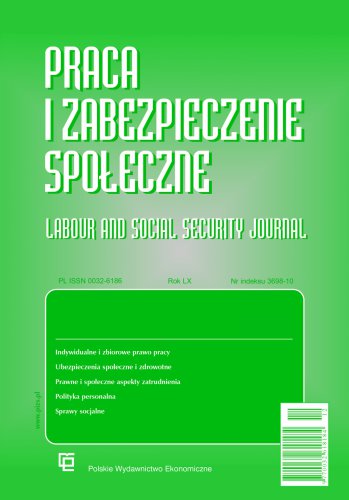The article aims to present the reasons for the proclamation of the International Labour Organization Convention No. 190 and portraits an entirely new approach to the definition of violence and harassment in the work environment. Due to the subject matter of the article, all source materials based on which specific theses and conclusions are formulated are based on reports and analyses carried out within the International Labour Organization, although – of course – these are not the only studies on this issue. It is primarily about the approximation of the factors that influenced the specific solutions adopted in the described Convention because the source materials later shape the way of interpreting and applying the provisions of the Convention. In the conventions of the International Labour Organization adopted so far, violence and harassment were regulated by two categories of rights, i.e. the right to decent working conditions, the right to equal and non-discriminatory treatment, and the right to safe and hygienic working conditions. The above dichotomy of the legal classification of harassment and harassment resulted in the activation of a set of different rights and protection measures based on different legal grounds. The article illustrates a totally different approach to these phenomena, which are dangerous for right-wing conditions, such as violence and harassment. Arguments are delivered for the thesis of adopting an autonomous and uniform definition in the ILO Convention No. 190, which allows both categories of violations, i.e. violence and harassment, not to be treated as elements of other rights, such as the prohibition of discrimination or the category of occupational risk.
The conclusions also include the benefits that may result from the adoption of the definition proposed in the ILO Convention No. 190, for example for the use of the institution of mobbing regulated in the Labour Code. The applicable regulations assume the need to distinguish between harassment, considered a category of discrimination, and mobbing, considered a form of psychological and physical violence, which differs in terms of criteria only in terms of duration.
Keywords: violence; harassment; International Labour Organization; Convention 190

